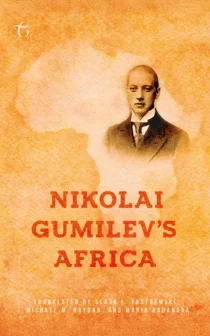Hard Times
€9.95 – €25.55
Author: Ostap Vyshnia
Translator: Yuri Tkach
A brilliant satirist, Ostap Vyshnia sent up the shortcomings of Soviet life and bureaucracy in the 1920s. He was famous in Ukraine almost exclusively for his feuilletons, and achieved enormous popularity in this genre in the 1920s, especially among the peasant population.
A brilliant satirist, Ostap Vyshnia sent up the shortcomings of Soviet life and bureaucracy in the 1920s. He was famous in Ukraine almost exclusively for his feuilletons, and achieved enormous popularity in this genre in the 1920s, especially among the peasant population. Called by many the father of contemporary Ukrainian satire, he became the most-read author after Taras Shevchenko. Many village and town cooperatives, schools and farms were spontaneously named in his honour. Over two million copies of his books were sold by 1930.
This second revised and expanded edition is introduced by Professor Maxim Tarnawsky (University of Toronto).
[real3dflipbook id=’59’]
| Dimensions | N/A |
|---|---|
| Author | Ostap Vyshnia |
| Pages | 206 pages |
| Publication date | 15th June 2018 |
| Book Format | Hardcover, Paperback, EPUB, Kindle, PDF |
Author
Ostap Vyshnia (1889-1956) was born Pavlo Hubenko in Hrun, Poltava Province, Ukraine. He was educated at the Kyiv Military Medical Assistants School and began writing in 1919 at the ‘mature’ age of thirty.
He is famous in Ukraine almost exclusively for his feuilletons, and achieved enormous popularity in this genre in the 1920s, especially among the peasant population. Called by many the father of contemporary Ukrainian satire, he became the most-read author after Taras Shevchenko. Many village and town cooperatives, schools and farms were spontaneously named in his honour. Over two million copies of his books were sold by 1930.
Arrested in 1933 as an ‘enemy of the Soviet people,’ he was released from the labour camps ten years later during World War II.
The large editions of his books in the 1920s and his daily columns in many newspapers meant that Ostap Vyshnia was very well off materially. However, he directed a large percentage of his income to those who most needed it – poor villagers, widows, and those in financial difficulties. Students turned to him as if he were their own father. For several years, he maintained a boarding house for ten medical students in Poltava.
Because of his great popularity and the respect he commanded, Ostap Vyshnia was able to influence the outcomes of court cases against organisations and individuals. Every day, he received hundreds of letters with requests for help, with grievances against bureaucrats – and Ostap Vyshnia reacted immediately with daily feuilletons and letters to the highest authorities.
His works are notorious for their colourful language, being liberally sprinkled with slang and dialectical words, which he constantly recorded while extensively travelling the country. Vyshnia fervently believed that writers needed to write as the people spoke.
Endorsements and Review Quotes
“Vyshnia’s short stories, however, maintain a sense of comedy and sincere awareness of real-life situations that translate across time and culture (no doubt attributable to Yuri Tkach’s translation, too) and gives a humorous insight into Soviet life and bureaucracy in the 1920s.” Buzz Magazine
“I find myself admiring Vyshnia’s pellucid prose, snappy short stories and the talents of his translator, Yuri Tkach.” Caroline Wyatt, RivetingReviews
Only logged in customers who have purchased this product may leave a review.
Related products
-
Acropolis: The Wawel Plays
€9.95 – €33.99 Select options This product has multiple variants. The options may be chosen on the product page -
Jesus’ Cat
€9.95 – €22.99 Select options This product has multiple variants. The options may be chosen on the product page -
Nikolai Gumilev’s Africa
€9.95 – €26.50 Select options This product has multiple variants. The options may be chosen on the product page -
Death of the Snake Catcher
€9.95 – €23.99 Select options This product has multiple variants. The options may be chosen on the product page -
The Hemingway Game
€9.95 – €25.50 Select options This product has multiple variants. The options may be chosen on the product page






Reviews
There are no reviews yet.